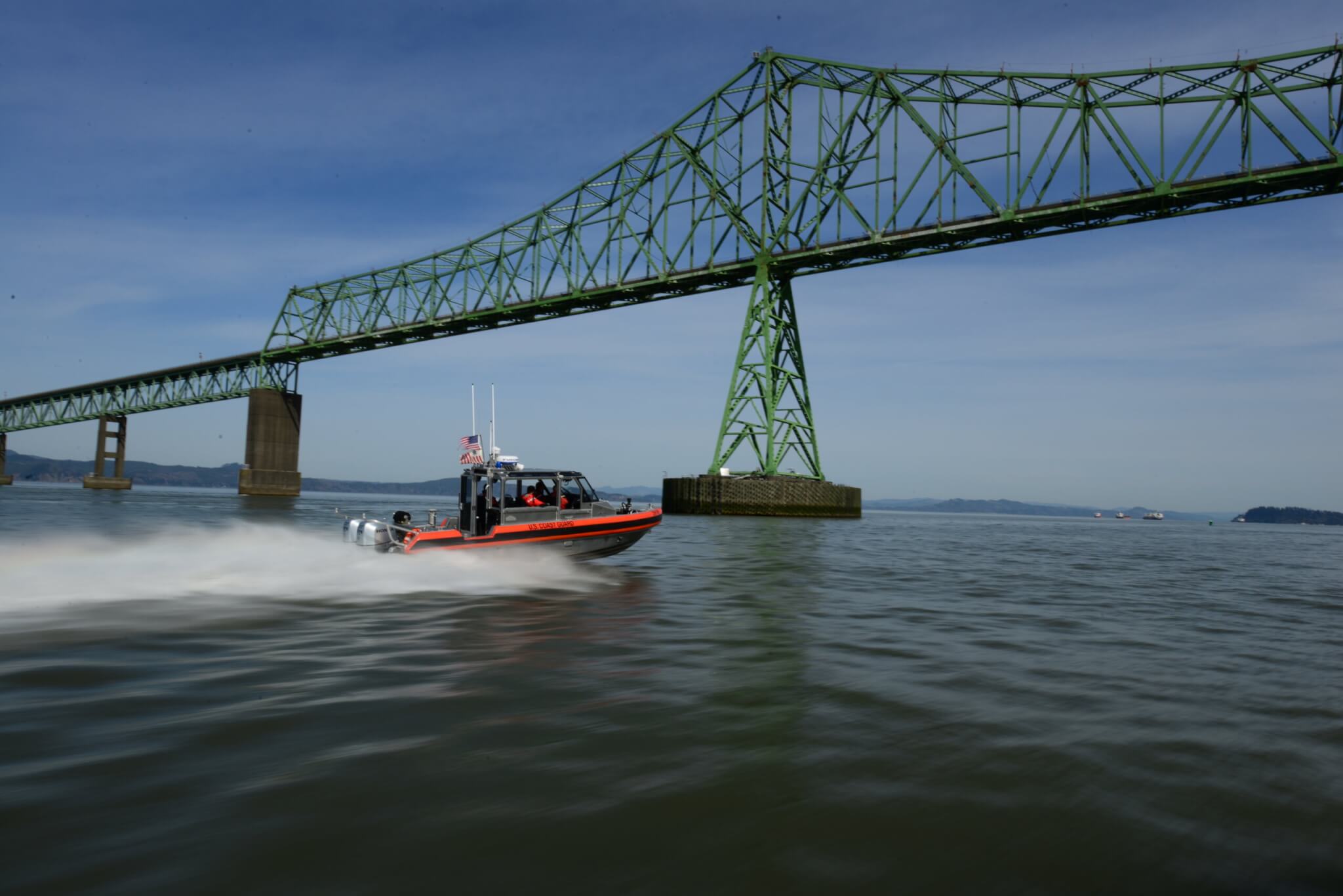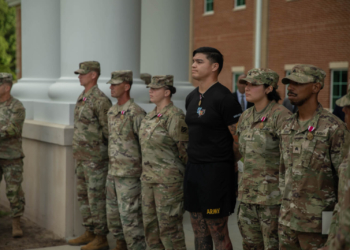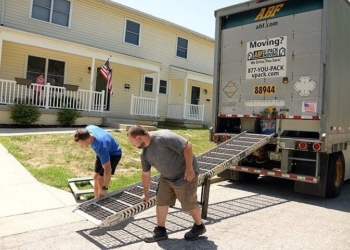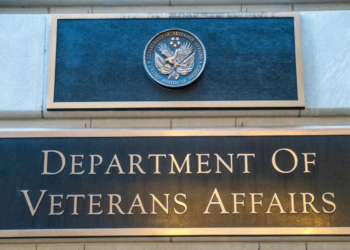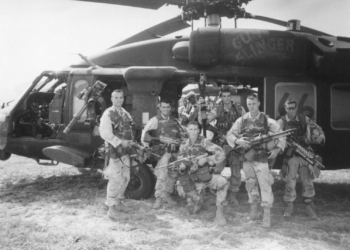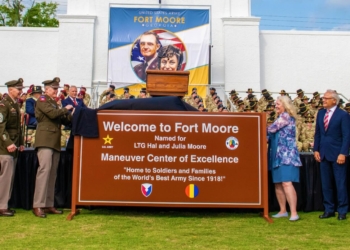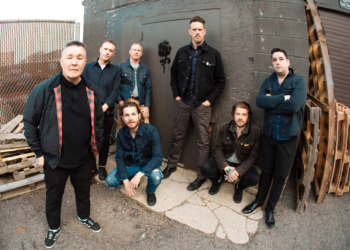Retired Chief Warrant Officer Christopher D’Amelio spent eight years performing search and rescue operations for the Coast Guard at what is known as the “Graveyard of the Pacific.” Now he is detailing the experience in a new book that takes readers through five of the most significant search and rescue cases during his tour and how the work affected him and his colleagues mentally and physically.
Cape Disappointment is located at the extreme southwestern corner of Washington on the northside of where the Columbia River meets the Pacific Ocean. Considered one of the most dangerous maritime channels in the world, the Coast Guard has been saving people in its treacherous waters since 1878.
Becoming a surfman isn’t an easy task, with roughly 10 coasties passing the certification annually. It is the highest level of boatmanship for those who operate the service’s search and rescue boats, but for a man who always felt called to the ocean, D’Amelio says it was meant to be.
“I’m passionate about the ocean and have been in it since I was 6 years old growing up on the coast in California,” he said. “Honestly, I’m just lucky that I grew up around it and had a good eye. That’s all I ever wanted to do.”
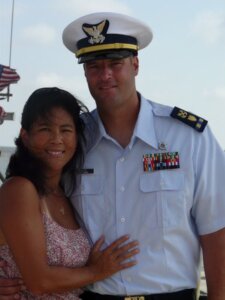
In 1995, Chris enlisted in the Coast Guard and married his wife, Courtney, shortly after graduation.
“Those first years with him on the 378 [USCGC Sherman] were the roughest for us. He was gone for three months at a time patrolling the Bering Sea and then home for barely a few weeks that first year,” she said, “and then it got worse.”
Chris agreed, adding that one year they had drydock for three months on top of the normal patrol schedule. And there was that time a helicopter wheel rolled over his foot and broke it.
Courtney then shared memories of watching children and babies cry at the pier, which she says solidified their resolve to hold off on starting a family until Chris finished his tour.
When the opportunity came in 1998 to move to Cape Disappointment and be at a station instead of on a cutter, the couple jumped at the chance. Though already extremely skilled as a “BM,” Chris says he quickly embraced pursuing surfman qualification — and earned it half the time as his peers.
“We don’t really talk about it in the Coast Guard so it’s hard to get people interested in something that they know nothing about,” he said.
Courtney thinks fondly of their time on “the Cape,” including sweet memories of watching him from their living room window while he drove the boat and big holiday celebrations with the crew at their house.
After running more than 400 search and rescue cases, there was “the one” he couldn’t shake. Within a month he was contacting the BM detailer and asking for a transfer to a new unit. Just 11 months later in 2005, Chris, Courtney and three children were transferred to Florence, Oregon. He advanced in rank to chief petty officer and was no longer on the frontline of operations as a surfman.
By 2016, he was stationed in New Orleans. Opportunities had come up for him to transfer to other units, but the family was happy and settled in. After passing out unexpectedly, doctors discovered a rare heart condition which forced him into medical retirement.
“Honestly, I was pretty bitter at how it ended because it wasn’t on my terms. I wasn’t ready,” Chris said. “I started worrying about not being around for my three kids and people kept telling me I should write a book about my life. I didn’t take it seriously at first but then I started writing things down here and there.”
By 2021, “Life and Death at Cape Disappointment” was on shelves everywhere. The memoir not only chronicles his life and family, but the cases that impacted his life. Chris was vulnerable in discussing the impacts of trauma, guilt and PTSD to his mental health.
“I think the process of writing the book helped him process and really deal with the hard cases,” Courtney said. “Honestly, when he was working or the SAR alarm would go off and he went out — I never worried about him. I knew he was great at it, and he never brought it home so it wasn’t really until I read the book that I realized how bad it had actually been.”
The toll was not just mental but physical as well, which is not surprising given the high injury rate for a surfman.
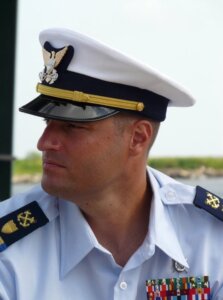 “I’ve had three back surgeries, three knee surgeries and have broken ribs. You really get beat up.” Chris added, detailing further in the book.
“I’ve had three back surgeries, three knee surgeries and have broken ribs. You really get beat up.” Chris added, detailing further in the book.
“By the time I left Cape Disappointment, I had been involved in 430 cases and amassed over 2,200 hours of under-way time, operating on the Columbia River Bar. I drove boats into 70 mph winds; I towed fishing boats through storms, I rescued capsized boats from twenty-foot waves. There was nothing else like it for me.”
In the fall of 2023, Lyons Press re-released the book in hardcover format and the response has been overwhelmingly positive, Chris said, crediting his wife for her role in his career.
“I wouldn’t have been successful without her [his wife]. She was home with our children and took care of everything so I could run these missions and serve. Now the roles have switched,” he laughed.
And despite the challenges his heart condition added to his life and a career cut short, Chris continues to push the limits including running miles every day and surfing when he goes back to California. It’s a running joke between he and his wife that he dreamed of being a fish growing up because of his love of the water and she continues to hate everything about the ocean.
As he reflects back on his time as a surfman, Chris says he is grateful and continues to be inspired.
“There’s a lot of selfless people out there risking their lives all the time on a daily basis. Just like a fireman but the difference is you hear the sirens of the truck and you know where they’re going,” he said. “No one sees what these coasties do on the ocean or the Columbia River Bar. It’s not as visible. But there are men and women getting up every day, saving people without recognition. I wish other people could see it. Now, maybe they will.”


